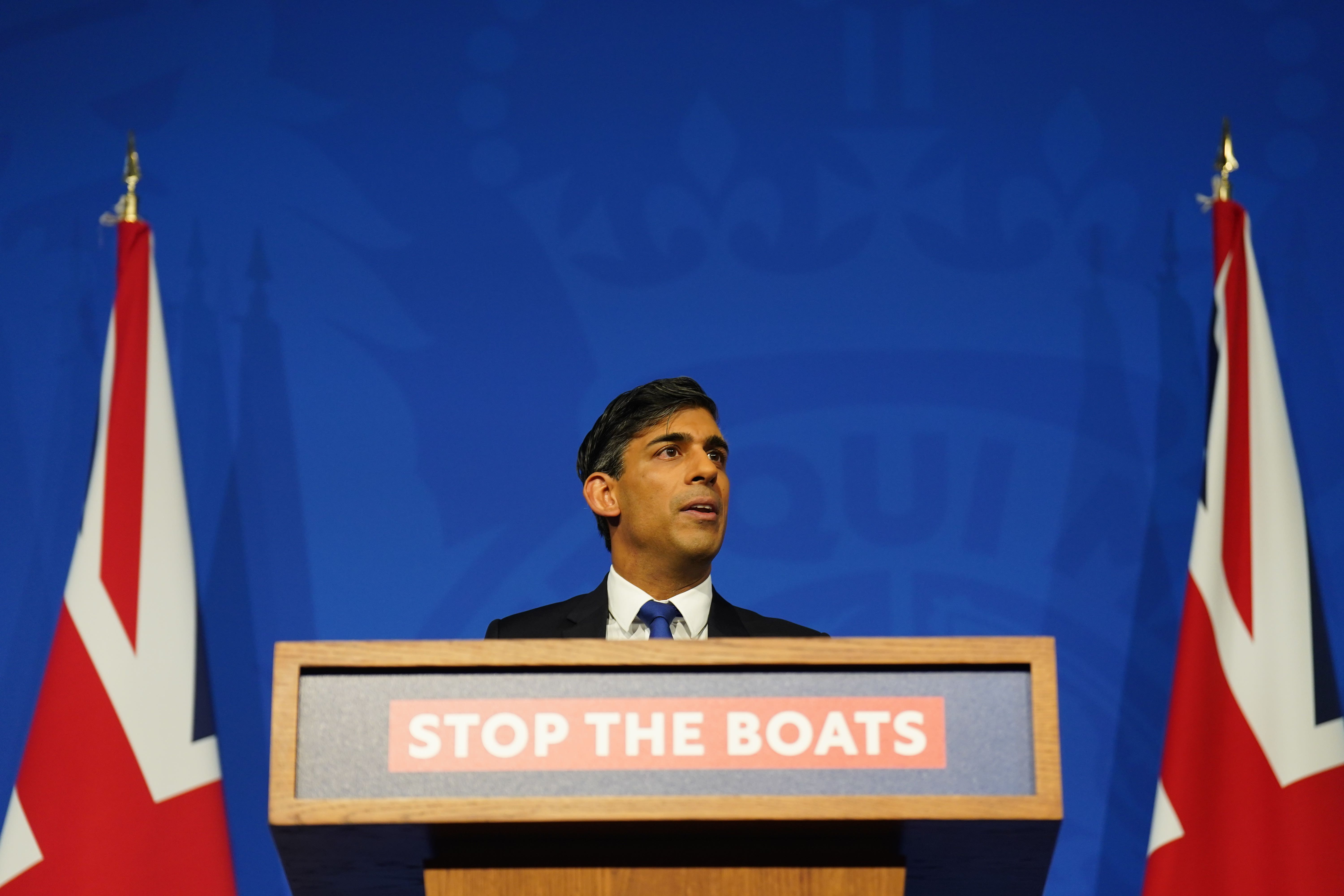New EU anti-migrant deal will help Rishi Sunak ‘stop the boats’, claims French politician
French MEP suggests new Brussels deal could stop asylum-seekers crossing Channel – even despite Brexit
The European Union has struck a breakthrough deal to change how it processes asylum-seekers after years of political deadlock – which could help Rishi Sunak’s flagship mission to “stop the boats”.
While Brexit means the UK is not involved in the deal, one French MEP central to the negotiations suggested on Wednesday that it would stop asylum-seekers from arriving in Calais and trying to make the treacherous journey across the Channel.
The political agreement, reached after all-night talks in Brussels, would see each EU member state assigned a share of the 30,000 people overall the bloc is expected to accommodate per year, or to help their hosting peers by providing cash, equipment or personnel.

It would also aim to see those deemed unlikely to win asylum put into “waiting zones” while their claims are dealt with in a maximum of 12 weeks – and then expelled to their home countries within a further three months if their claims are rejected.
EU countries could also apply the expedited procedure to people picked up in the sea, caught while trying to enter cross their borders without documents, or filing for asylum at a country’s border rather than in advance.
Amnesty International has warned that the plans – set to start coming into force next year – “will lead to a surge in suffering for asylum seekers, refugees and migrants on every step of their journey”.
French MEP Fabienne Keller, of the Renew Europe group, who led the negotiations, insisted the Geneva Convention will be “fully applied” in the so-called waiting zones, adding: “If I may make a comparison, instead of sending people to Rwanda, we are doing it on European soil.”
Asked by the BBC whether a similar deal could be struck with Britain, Ms Keller said: “It would be great. Brexit is a trauma for us. And we can still imagine, even though the UK has quit Europe, to have a kind of agreement extending the same principles.”

With Labour having vowed to strike a migrant returns deal with the EU if Sir Keir Starmer’s party wins the next general election, Ms Keller said the UK would “probably” have to agree to take in a certain number of asylum-seekers and contribute certain sums of money, “as it is the case for all the member states”.
But the MEP suggested cross-Channel migration in small boats could fall even without a specific UK-EU deal.
“Actually with the new system, they should not arrive any more to Calais,” Ms Keller told BBC Radio 4’s PM programme.
“Because when they come irregularly to Italy, they are what we call ‘inadmissible’, because they don’t want to apply for asylum in Europe.
“They don’t have papers to enter Europe, so they have no reason to stay, no reason to travel through Europe. We can project that this would be a consequence of the systematic control of irregular migrants crossing the frontiers irregularly.”
Mr Sunak has made “stopping the boats” one of his five key pledges in office, four of which remain unfulfilled.
While nearly 30,000 asylum-seekers have crossed the Channel this year, the prime minister is now increasingly staking his political future on getting his predecessor Boris Johnson’s Rwanda scheme off the ground, after it was ruled unlawful by the Supreme Court last month.
Additional reporting by Reuters
Join our commenting forum
Join thought-provoking conversations, follow other Independent readers and see their replies
Comments
Bookmark popover
Removed from bookmarks